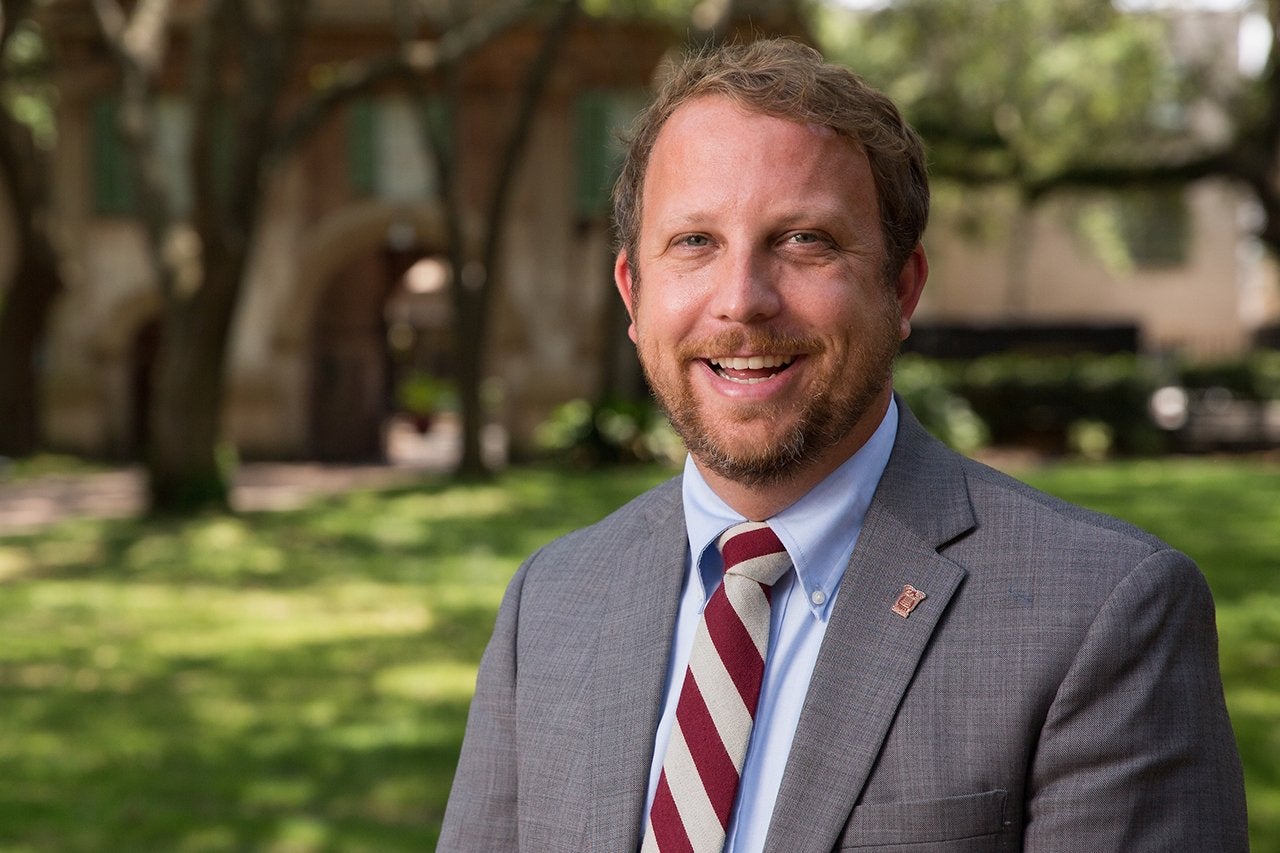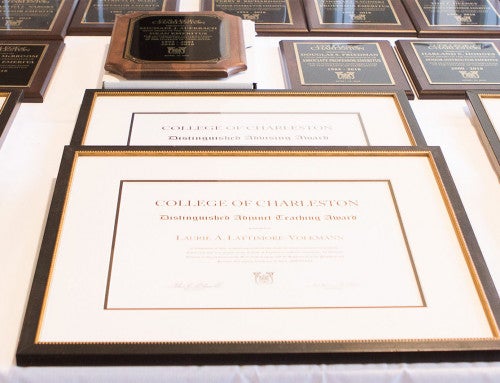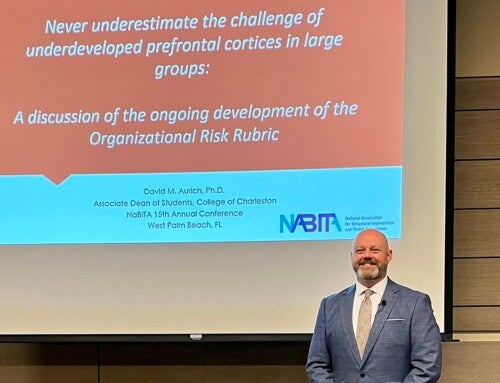The American Council on Education (ACE) recently announced that Paul Patrick, chief of staff for College of Charleston President Andrew T. Hsu, has been named an ACE Fellow for the 2022–23 academic year. Following nomination by the senior administration of their institutions and a rigorous application process, 46 fellows were selected this year.
“It’s an incredible opportunity,” says Patrick, who has been with the College for almost eight years. “President Hsu was an ACE Fellow, and he still today pulls from experiences with the program. While I was able to work for all state schools when I worked at the Statehouse, my perspective in higher education is most formed by my time here at the College. This fellowship will afford me the ability to gain a boarder view and see how other campuses are approaching many of the same issues we are currently working on here at CofC.”
Established in 1965, the ACE Fellows Program is designed to strengthen institutions and leadership in U.S. higher education by identifying and preparing faculty and staff for senior positions in college and university administration through its distinctive and intensive nominator-driven, cohort-based mentorship model. About 2,500 higher education leaders have participated in the ACE Fellows Program over the past five decades, and more than 80% of the fellows have gone on to serve as senior leaders of colleges and universities.
“The ACE Fellows Program embodies ACE’s goal of enriching the capacity of agile leaders to problem-solve and innovate, and it fuels the expansion of a talented and diverse higher education leadership pipeline,” says ACE President Ted Mitchell. “Fellows continue to excel in prominent leadership roles, and the potential of this new cohort to bring strong leadership to institutions across America greatly excites me.”
The program, which starts in August 2022, condenses years of on-the-job experience and skills development into a single year through a combination of retreats, interactive learning opportunities, visits to campuses and other higher education–related organizations, and placement at another higher education institution. During the placement, fellows observe and work with the president and other senior officers at their host institution, attend decision-making meetings and focus on issues of interest. Fellows also conduct projects of pressing concern for their home institution and seek to implement their findings upon completion of the fellowship placement.
At the conclusion of the fellowship year, fellows return to their home institution with a network of peers across the country and abroad as well as new knowledge and skills that contribute to capacity-building efforts.
President Hsu, who was an ACE Fellow in 2008 while he was the associate dean of engineering at Indiana University–Purdue University Indianapolis, encouraged Patrick to apply.
“Hardly a week goes by in which he does not mention something about what he learned through the program,” says Patrick.




